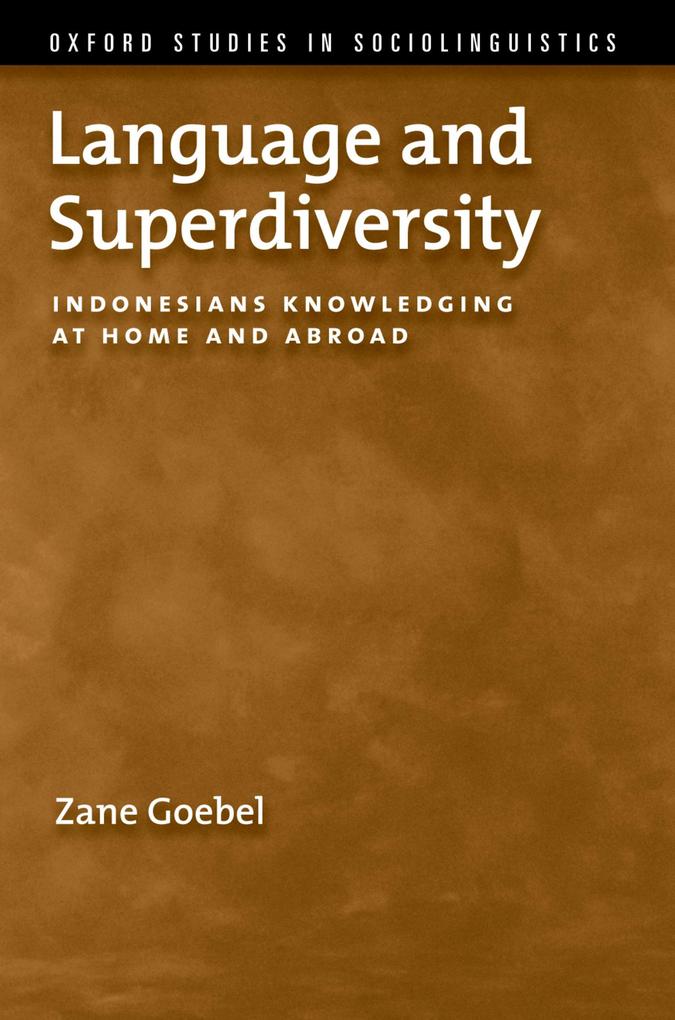
Sofort lieferbar (Download)
Scholars of language ideology have encouraged us to reflect on and explore where social categories come from, how they have been reproduced, and whether and to what extent they are relevant to everyday interactional practices. Taking up on these issues, this book focuses on how ethnicity has been semiotically constructed, valued, and reproduced in Indonesia since Dutch colonial times, and how this category is drawn upon in everyday talk. In doing so, this book also seeks to engage with scholarship on superdiversity while highlighting some points of engagement with work on ideas about community. The book draws upon a broad range of scholarship on Indonesia, recordings of Indonesian television from the mid-1990s onwards, and recordings of the talk of Indonesian students living in Japan.
It is argued that some of the main mechanisms for the reproduction and revaluation of ethnicity and its links with linguistic form include waves of technological innovations that bring people into contact (e. g. changes in transportation infrastructure, introduction of print media, television, radio, the internet, etc.), and the increasing use of one-to-many participation frameworks such as school classrooms and the mass media. In examining the talk of sojourning Indonesians the book goes on to explore how ideologies about ethnicity are used to establish and maintain convivial social relations while in Japan. Maintaining such relationships is not a trivial thing and it is argued that the pursuit of conviviality is an important practice because of its relationship with broader concerns about eking out a living.
It is argued that some of the main mechanisms for the reproduction and revaluation of ethnicity and its links with linguistic form include waves of technological innovations that bring people into contact (e. g. changes in transportation infrastructure, introduction of print media, television, radio, the internet, etc.), and the increasing use of one-to-many participation frameworks such as school classrooms and the mass media. In examining the talk of sojourning Indonesians the book goes on to explore how ideologies about ethnicity are used to establish and maintain convivial social relations while in Japan. Maintaining such relationships is not a trivial thing and it is argued that the pursuit of conviviality is an important practice because of its relationship with broader concerns about eking out a living.
Produktdetails
Erscheinungsdatum
15. Mai 2015
Sprache
englisch
Seitenanzahl
336
Dateigröße
25,43 MB
Autor/Autorin
Zane Goebel
Verlag/Hersteller
Kopierschutz
mit Adobe-DRM-Kopierschutz
Produktart
EBOOK
Dateiformat
PDF
ISBN
9780199795529
Entdecken Sie mehr
Bewertungen
0 Bewertungen
Es wurden noch keine Bewertungen abgegeben. Schreiben Sie die erste Bewertung zu "Language and Superdiversity" und helfen Sie damit anderen bei der Kaufentscheidung.










